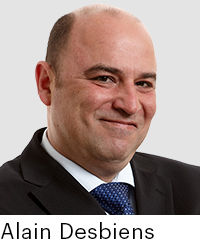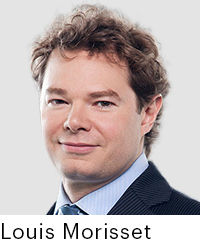This article is a Magazine Supplement for the February issue of the Insurance Journal.
A recent survey report by the Responsible Investment Association (RIA) finds that advisors tend to overestimate their knowledge of responsible investing. The Canadian Advisors’ Perspectives on Responsible Investment survey took the pulse of 539 advisors in September 2021.
Of the participants who rated their knowledge of responsible investment (RI) as excellent or very good, 20 per cent did not correctly identify which of three statements about RI were true among the 10 statements presented to them. Only six per cent of all participants pinpointed all three of the true statements.
For example, 40 per cent of participants thought that less than 15 per cent of all professionally managed assets in Canada take ESG issues into account. This statement is false, the RIA says.
Another RIA survey of 1,000 Canadian investors conducted in September 2021 found that 77 per cent would want to be informed about responsible investing that aligns with their values. However, only 27 per cent of the survey participants said their advisor had asked them about RI.
Delving into methodology

Alain Desbiens, Director of BMO ETFs at BMO Global Asset Management, says the need for education and information about ESG funds is as pressing as a similar need was for exchange traded funds (ETFs) a decade ago. He urges advisors to look under the hood when analyzing the various ESG investment products available in the marketplace.
“Advisors need to have a good understanding of responsible investment, as regulators are increasingly requiring them to be more knowledgeable about products,” Desbiens told Insurance Journal. “That’s one of the basics. In turn, product providers need to show clients, investors, portfolio managers and advisors what methodology they use.”
To illustrate the type of information that providers can share, Desbiens uses the example of his portfolio of ETFs based on the various MSCI ESG Leaders indices. For example, the performance of the MSCI World ESG Leaders Index strongly parallels that of the benchmark MSCI World Index. The same is true of its flagship MSCI USA ESG Leaders ETF (ESGY), which is the best performing ETF in the market in terms of net sales in 2021.
BMO Global Asset Management was specifically seeking such parallel results in this index fund portfolio, Desbiens points out. “There is not a big gap or magnitude between the performance of the MSCI ESG Leaders Index and the benchmark. We wanted to have an index-like performance that was roughly the same as the benchmarks, but with more stringent environmental, social and governance criteria,” he explains
Justifying the choice of indices
BMO uses a methodology that enhances funds’ ESG profile, which it clarifies in a guide. Desbiens outlined the strategy for the ESG Leaders funds. “On both the equity and fixed income sides, we target 50 per cent of the market capitalization per TSX sector, with a minimum ESG rating of BB,” he says.
MSCI puts the BB rating at the lower end of the “average” spectrum, which ranges from BB to BBB to A. Leaders are rated AA to AAA. Companies considered laggards fall into the CCC to B range. “We make certain exclusions, such as thermal coal, coal-fired power, unconventional oil (e.g., oil sands in Canada), and nuclear weapons,” Desbiens adds.
Research has shown that companies that focus on material ESG issues perform better financially than those that look at all ESG issues, Desbiens continues, citing the BMO methodology guide. The guide describes the methodology of the MSCI ESG Leaders Index in detail. MSCI evaluates each company in the MSCI World Index based on a handful of ESG issues that are most relevant to its industry and operations. Governance risk is assessed overall. Each company has E, S, and G ratings. The components of a rating differ from sector to sector. A financial company will not be rated for water scarcity risk, while a soft drink company like Coca-Cola would be, the guide explains.
Investment fund providers need to explain why they choose a particular index provider, Desbiens believes. He points out that it is the index provider that decides on exclusions or inclusions. “Our role is to choose firms and indices that we want to bring to the Canadian market. We liked the robustness of the MSCI ESG Leaders Index and its track record. This was very reassuring to both institutional and individual investors.”
Weeding out greenwashing
Of the advisors surveyed by RIA, 81 per cent expressed concern about greenwashing. Seventy-four percent were worried about the lack of responsible investment standards. Several advisors left comments indicating that standardization of responsible investing would help them overcome their concerns, RIA noted.
In its survey, RIA cites the Oxford Dictionary definition of “greenwash”: “disinformation disseminated by an organization so as to present an environmentally responsible public image.” According to the Canadian Securities Administrators (CSA), greenwashing occurs where a fund’s disclosure or marketing intentionally or inadvertently misleads investors about the ESG-related aspects of the fund
In addition, 84 per cent of advisors surveyed by RIA said that environmental issues (such as climate change, biodiversity and toxic waste) are the most important ESG issues for their clients.

Jacen J. Campbell, Vice President, Investment at Groupe Cloutier, says the supply of socially responsible investment funds is growing. Several providers in the insurance industry are also offering segregated funds whose underlying SRI ETFs he considers very good. “There’s clearly a trend. It’s gaining a lot of momentum,” he says. “But you have to know how to tell the good stuff from the greenwashing. You can’t just go by the name.”
To distinguish between real ESG funds and greenwashing, Campbell recommends that advisors ask their clients some questions. This will help them pinpoint whether the client prefers a manager that applies an exclusionary process, or one that includes companies that can demonstrate that they are working to reduce pollution.
Campbell says it is important to diligently evaluate funds that advertise themselves as ESG, to confirm whether the manager adheres to ESG principles: “It’s a challenge in the industry to keep track because there are several protocols and diverse criteria to consider.”
Groupe Cloutier does its own due diligence. “We have set up an investment committee that does analysis at the institutional investor level, regarding the funds and portfolio managers available. We encourage advisor education. For example, we have prepared advisors for certification with the RIA,” Campbell says. The RIA awards the RIAC (Responsible Investment Advisory Council) certification.
Regulators follow suit
In its 2021 Investment Funds report, the Investment Funds Institute of Canada (IFIC) said it would recognize only the funds that meet the following criteria as responsible investments: “the fund prospectus must mention an explicit responsible investing or ESG mandate in its investment objective or describe a recognized approach to RI in its investment strategy.”
IFIC’s caution reflects the spirit of the work that the CSA began in October 2021. This work culminated on January 19, 2022, when the CSA published guidance for investment funds on ESG. The regulatory body explains that this guidance relates to disclosure practices regarding environmental, social and governance considerations. The guidance specifically targets funds whose investment objectives reference ESG factors and funds that use ESG strategies.

The guidance addresses investment objectives, fund names, investment strategies, risk disclosure, continuous disclosure and advertising communications. “Interest in ESG investing is on the rise and this enhanced and practical guidance will play an important role in helping investors make informed decisions about ESG products, as well as preventing potential greenwashing” said Louis Morisset, CSA Chair and President and CEO of the Autorité des marchés financiers.
The CSA explains that the disclosure guidance is intended to help investment funds and their managers enhance the ESG-related aspects of the funds’ regulatory disclosure documents. It also aims to ensure that sales communications regarding these funds are not untrue or misleading, and that they are consistent with the funds’ regulatory offering documents.
Canadian ESG fund managers will need to do their homework when selecting companies for their funds. PwC Canada says that Canadian companies are not consistently disclosing ESG information. The accounting firm’s study 2022 Canadian ESG Reporting Insights finds that only 41 per cent of companies publish ESG reports showing how sustainability is a fundamental part of their core strategy. PwC Canada portrays the study as an analysis of ESG reporting maturity of 150 of Canada’s top organizations.
PwC Canada also notes the lack of comparability of reported data. Of the companies reviewed, only 18 per cent benchmark key performance indicators against competitors or other external sources.

In addition, the PwC study found that more than 35 per cent of companies have a formal net-zero commitment, but only 17 per cent have committed to achieving net-zero emissions by a specific date. “Leaders of Canadian organizations need to understand that transparency and accountability are critical for stakeholders in today's evolved business environment,” says Sarah Marsh, Partner and National ESG Report and Assurance Leader, PwC Canada.
Organizations must address the true value of ESG information as soon as possible, Marsh adds. “As stakeholders look for leadership on climate change, social justice and other pressing challenges, Canadian companies that demonstrate how they're creating value for everyone will gain an edge on several fronts,” she says.




